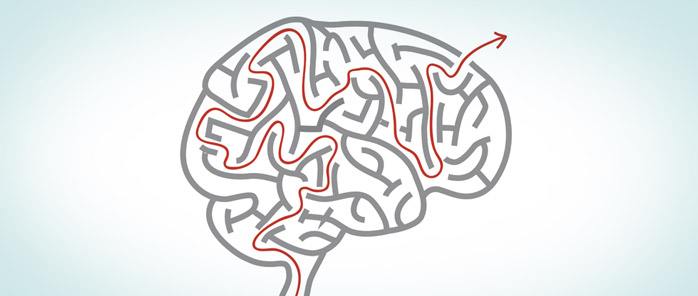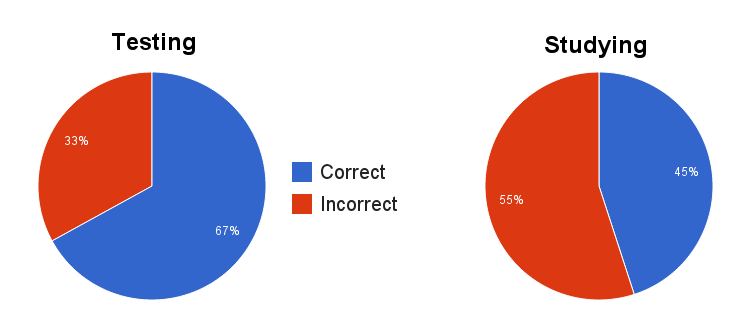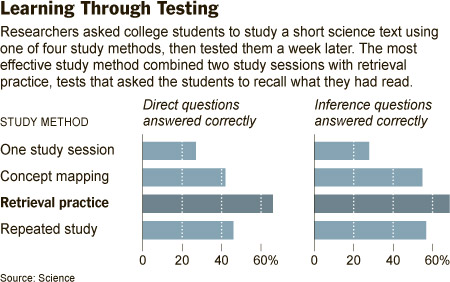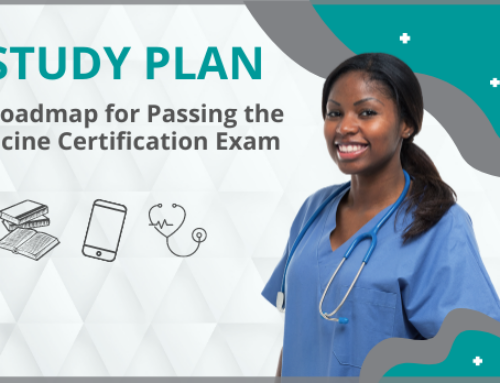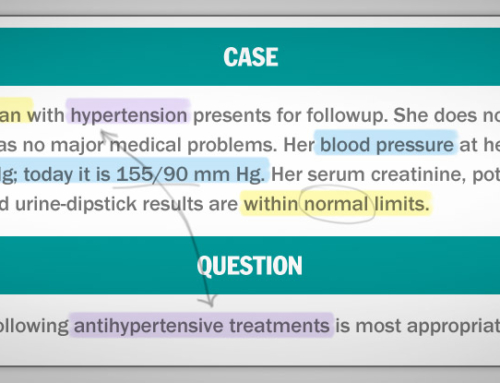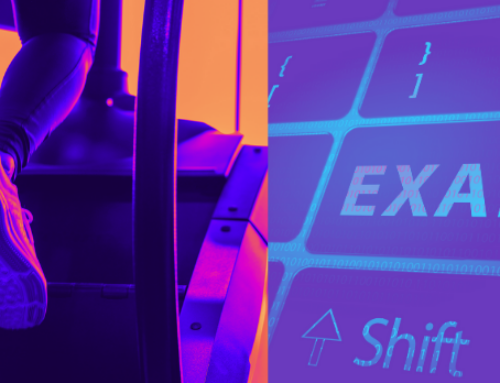What Is the Testing Effect?
By testing your memory, you not only assess what you know but also enhance later retention.
This is not news.
In 1620, Francis Bacon wrote, “If you read a piece of text through twenty times, you will not learn it by heart so easily as if you read it ten times while attempting to recite from time to time and consulting the text when your memory fails.”
Numerous studies in the past few decades have proven the testing effect true for every age group and level of learning out there, from elementary school students to university undergraduates to medical students, residents, and faculty.
As Henry Roediger and Jeffrey Karpicke, psychologists at Washington University, have written in their 2006 research article in Psychological Science, “Testing has a powerful effect on long-term retention.”
The testing effect is real. Dozens of studies show that you will recall 50% more of learned information by testing yourself than by using the same amount of time to study (for example, one research team found a score difference of 67% with testing vs. 45% with studying).
The Difference between Learning, Studying, and Testing
“Learning” has historically been confined to the initial exposure to new information and skills that happen in classrooms, by reading texts for the first time, by observing, through apprenticeships, and in training.
Psychologists and education experts define “studying” as reading or reviewing material that you have already learned, reinforcing your knowledge through repeatedly reminding yourself of the information you have to remember. Using mnemonics, flashcards, taking notes, and reading all count as studying. “Concept mapping” is a popular study tool in which students draw connections between the concepts and facts they are studying — the practice is supposed to lead to better learning by transforming the knowledge from passive to active learning, and to ensure the student fully grasps the concepts.
“Testing” is also called “active recall” or “retrieval practice.” In the journal Science, a study by Jeffrey D. Karpicke and Janell R. Blunt explained the method the students used to test their recall as “recalling as much of the information as they could on a free recall test.”
An article in the New York Times about their study graphed the results as follows:
In this study, according to their article in Science:
The students then returned to the laboratory 1 week later for a final short-answer test. To assess meaningful learning, the test included both verbatim questions, which assessed conceptual knowledge stated directly in the text, and inference questions, which required students to connect multiple concepts from the text.
The surprising thing for the researchers was that “both elaborative concept mapping and retrieval practice are active learning tasks, and our results make it clear that whether a task is considered ‘active’ is not diagnostic of how much learning the task will produce.”
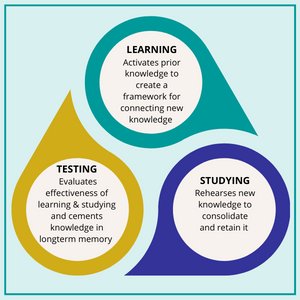 How Learning, Studying, and Testing Work Together
How Learning, Studying, and Testing Work Together
The three processes of learning, studying, and testing work together in a complementary way to enhance knowledge acquisition and retention. Learning provides the foundation for new knowledge by actively engaging with and forming connections between new and existing information.
Studying helps to consolidate and enhance memory retention by reviewing and rehearsing the learned material.
Testing is the powerhouse that cements learning. Done properly, it provides feedback on the effectiveness of the learning and studying processes, identifies areas of strength and weakness, and helps to promote deeper encoding for faster, more accurate recall.
Why Testing Improves Recall
Some posit that testing works differently in the brain than studying. Testing asks your brain to remember information on cue: this process could perhaps organize and create connections that our brains later recognize.
“When you’re retrieving something out of a computer’s memory, you don’t change anything — it’s simple playback,” said Robert Bjork, a psychologist at the University of California, Los Angeles, in the New York Times. “When we use our memories by retrieving things, we change our access” to that information, Dr. Bjork said. “What we recall becomes more recallable in the future. In a sense you are practicing what you are going to need to do later.”
In this sense, you are in fact learning, not just recalling, when you test yourself on your understanding of a topic, be it a simple fact or a series of processes and complex inferences.
3 Ways NEJM Knowledge+ Uses the Testing Effect to Create the Best Way to Study, Learn, and Retain Medical Knowledge
The comprehensive question banks in NEJM Knowledge+, strategically mapped to the board blueprints, enable you to harness the power of the Testing Effect so you can successfully prepare for and pass your certification exam. NEJM Knowledge+ questions employ:
- Active Recall
By activating prior knowledge as you answer NEJM Knowledge+ questions, your mind will develop durable neural pathways that allow you to quickly and accurately recall information. But you won’t waste valuable time on questions about material you’ve firmly mastered. That’s because our adaptive learning algorithm continually adjusts content based on your responses to the questions. - Spaced Repetition and Diverse Question Formats
The program’s learning algorithm also leverages spaced repetition to deliver the questions to you at intervals that promote long-term retention. And, the varied question formats allow you to develop a comprehensive understanding of the material that’s essential for tackling the case-based questions you’ll encounter on your certification exam. - Immediate Feedback
NEJM Knowledge+ provides immediate feedback on your responses to questions, including explanations for correct and incorrect answers. Timely, targeted feedback amplifies the Testing Effect because it reinforces accurate responses and nips misconceptions in the bud. The resulting knowledge mastery will lead to faster and accurate information retrieval when you’re sitting for your high-stakes certification exam.
But there’s so much more to NEJM Knowledge+. The program offers a range of additional features such as case simulations, gold-standard content, practice exams, and robust reporting, to name a few, all designed to create the best possible learning experience for you. By leveraging the Testing Effect along with all the other powerful features in NEJM Knowledge+, you can successfully prepare for and pass your certification exam!


